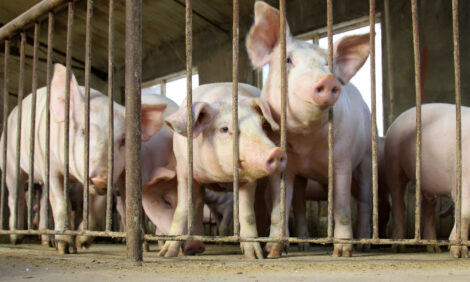



Feeding pigs in the tropics
Feeding pigs in the tropics - By Rena Pérez and published by the FAO - Pork is the largest source of meat at the world level, and considering that, due to religious beliefs, pork is not produced and consumed in many countries, its relative importance is even greater in the rest of the world.
Contents
- Principles of energy and protein nutrition
- Protein sources from plants and microbes
- Sugar cane
- African oil palm
- Roots, tubers, bananas and plantains
- Organic wastes
- Conclusions
Foreward
The largest producer and consumer is the People's Republic of China, where the livestock sector, including swine, has been growing at an unprecedented rate during the last two decades. The preference for pork of the most populated country in the world and the increasing demand resulting from its rapid economic growth, will require an enormous additional supply which would need huge amounts of grain and protein meals if the current feeding systems are maintained.
Monogastric production, both swine and poultry, has made a very important contribution to the production of animal protein in many countries around the world. The key of the success has been, so far, the importation of an almost complete package of technology, including parent and breeding stock, equipment, medicines and feed. Most of the diets are based on cereal grains and oil meals, which in principle compete directly or indirectly with human feeding, and utilize a large proportion of inputs derived from fossil fuels.
In order to assure the sustainability of swine production in many tropical countries, where the ingredients of the traditional diets can not be grown or destined to animal feeding due to the priority of the large human population, alternative feeding systems need to be studied, developed and extended.
The extensive review of the research on non-traditional feedstuffs contained in this publication, will serve as the basis for the development of such appropriate feeding systems which reduce or eliminate the need for imported ingredients in the short, medium or long term.
Many efforts remain to be done in that direction, and we would like to encourage researchers and extensionists in tropical countries to work hard for the development of such feeding systems which do not compete with human requirements and are environmentally friendly.
Source: Food and Agriculture Organization of the United Nations (FAO) - July 1997






